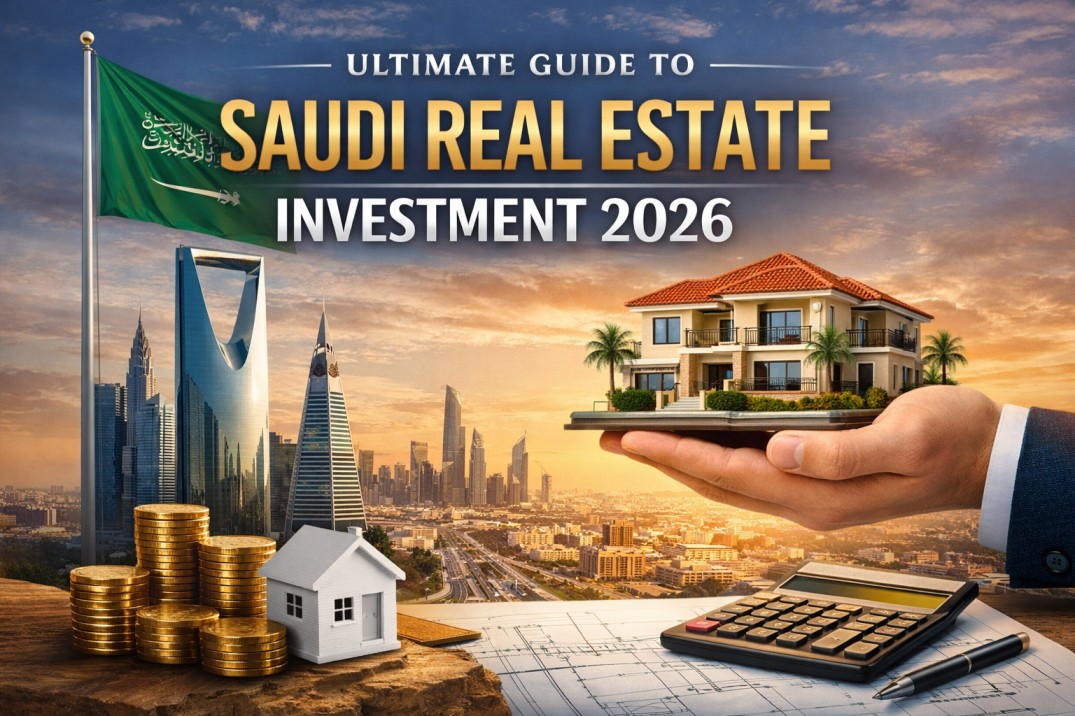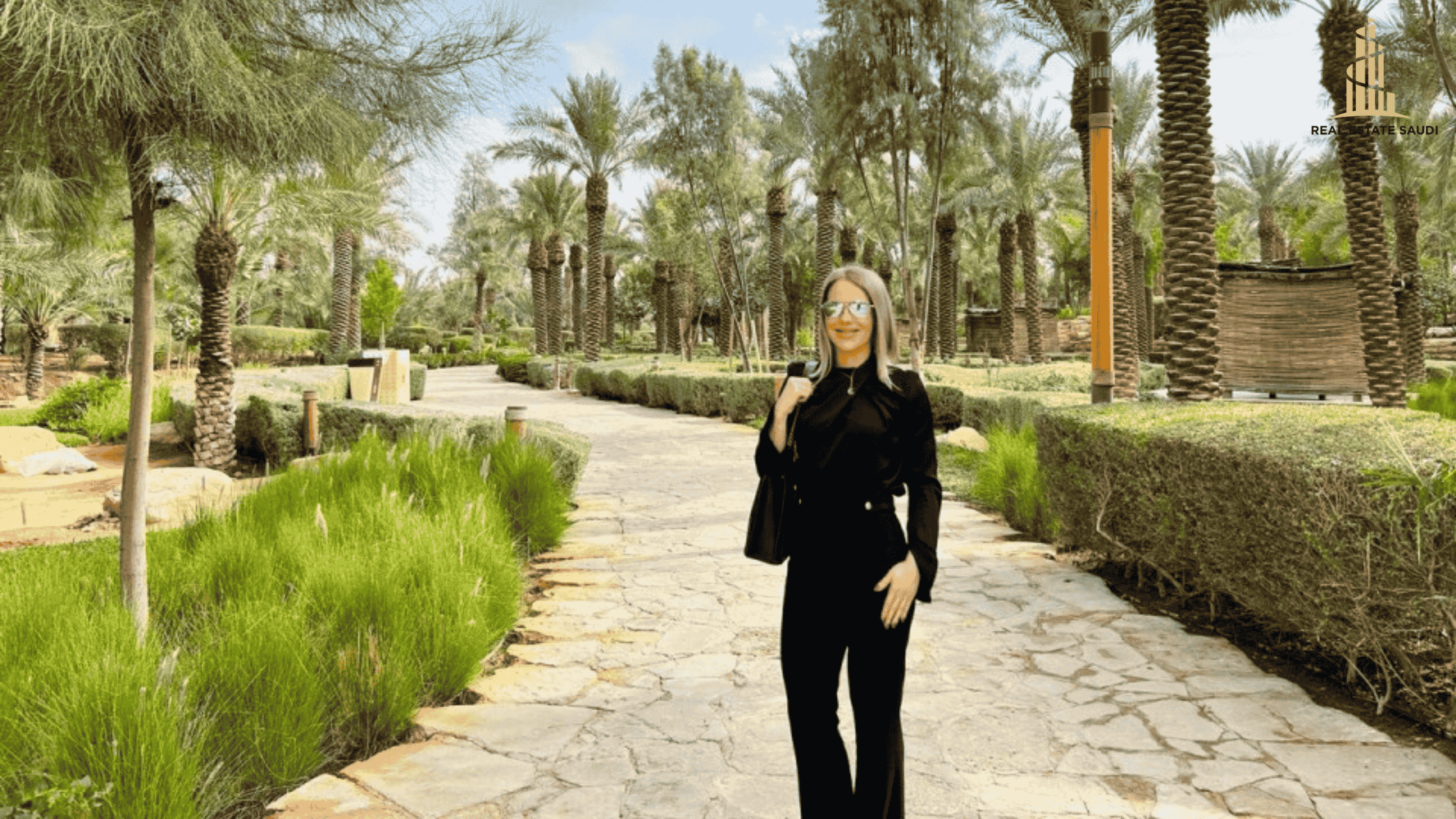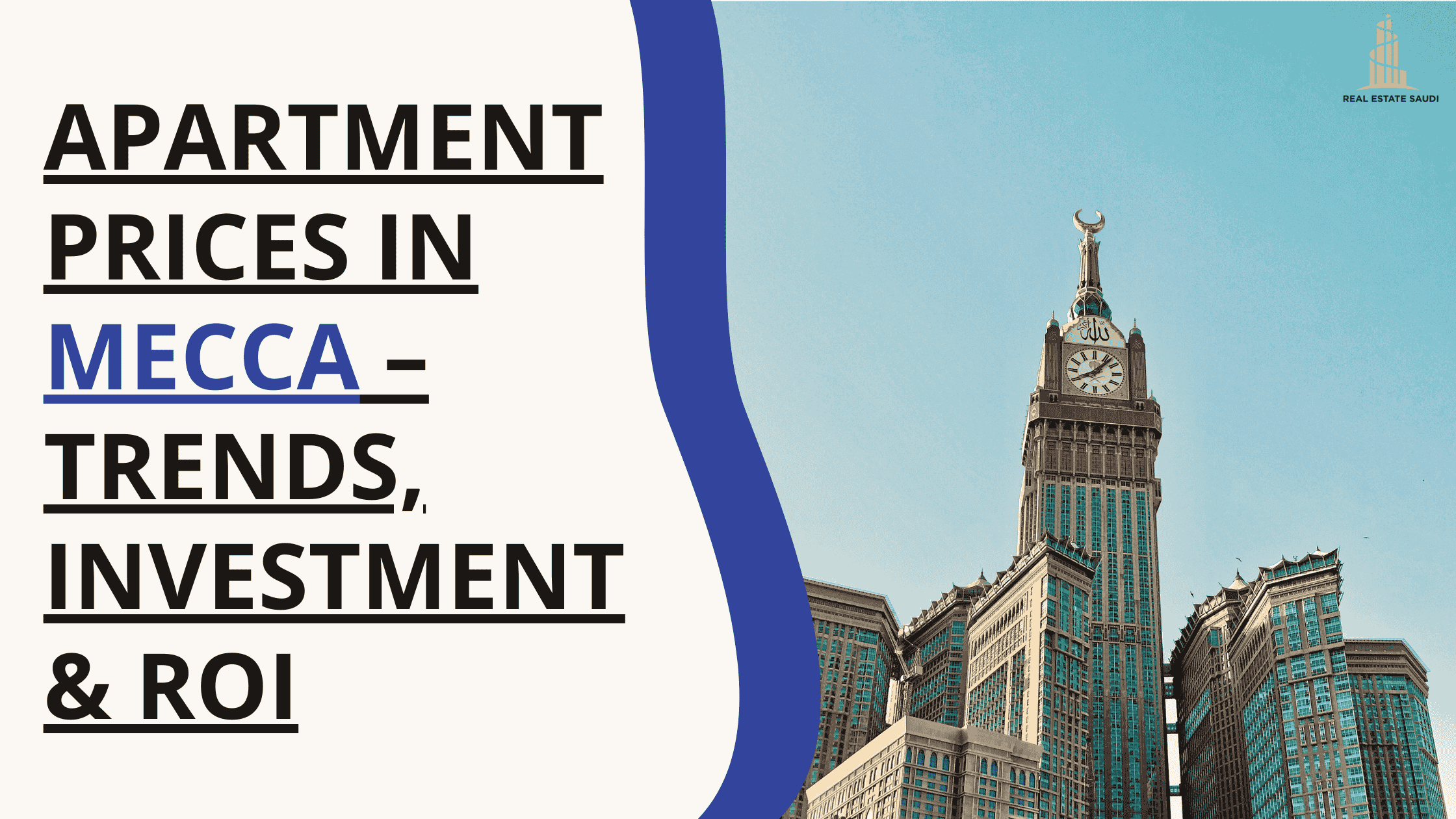Real Estate Investment Opportunities in Saudi Arabia: A Promising Market for Investors
Saudi Arabia is emerging as one of the most exciting markets for real estate investment in the Middle East. With rapid urbanization and a strong focus on economic diversification under the Vision 2030 plan, the Kingdom is drawing interest from investors worldwide. From thriving cities like Riyadh and Jeddah to groundbreaking mega-projects like NEOM and The Red Sea Project, Saudi Arabia offers a wealth of opportunities for those interested in the real estate sector. This article dives into the key areas and sectors transforming Saudi Arabia’s real estate landscape, including residential, commercial, tourism, and industrial spaces. Whether you’re an international investor or local developer, understanding these opportunities can help you make informed decisions in Saudi Arabia’s booming real estate market.
Vision 2030: The Catalyst for Real Estate Growth
Saudi Arabia’s Vision 2030 is a comprehensive strategy aimed at reducing the country’s dependence on oil, promoting sustainable growth, and developing new sources of revenue. The real estate sector has been a major focus under Vision 2030, with the Saudi government actively encouraging foreign investment and making it easier for investors to enter the market. Key initiatives like NEOM and The Red Sea Project are not just about urban expansion but also emphasize sustainability, technology, and high living standards. For investors, Vision 2030 is a clear indicator that the Saudi real estate market is on a long-term growth trajectory.
To learn more about how Vision 2030 is shaping the future, visit our article on The Future of Real Estate in Saudi Arabia.
Key Sectors in Saudi Arabia’s Real Estate Market
Saudi Arabia’s real estate market covers a wide range of sectors, each with unique growth potential:
- Residential Real Estate: The Saudi government’s housing initiatives, like the Sakani Program, aim to increase homeownership rates by offering affordable housing options for citizens. The demand for residential properties continues to grow, especially in Riyadh and Jeddah, as more people move to these cities for work and education. For potential investors, residential real estate offers steady returns, given the high demand for quality housing. Check out our insights on Saudi Arabia’s Top Residential Investment Opportunities.
- Commercial Real Estate: With Saudi Arabia positioning itself as a business hub in the region, demand for commercial properties has skyrocketed. Cities like Riyadh, with its emerging business districts and financial centers, are prime areas for commercial real estate investment. This sector includes office spaces, retail outlets, and hospitality. Our detailed overview of Commercial Property Investment in Riyadh explains why the capital city is attracting so much attention.
- Tourism and Hospitality: Vision 2030 aims to attract 100 million visitors by 2030, creating a surge in demand for hotels, resorts, and other hospitality-focused properties. The tourism and hospitality sector presents enormous opportunities for real estate investors, especially with high-profile developments like The Red Sea Project and the historic area of AlUla. These destinations are expected to bring in millions of visitors annually. For more information, see our article on Tourism Development Projects in Saudi Arabia.
- Industrial and Logistics Real Estate: Saudi Arabia’s efforts to become a regional logistics hub make industrial and logistics real estate a promising sector for investors. Facilities like warehouses and distribution centers are in high demand, particularly in strategic areas like the new logistics zone in Jeddah and King Abdullah Economic City (KAEC). For more details, see our guide on Investment Opportunities in Industrial Real Estate.
Top Locations for Real Estate Investment
While Saudi Arabia has opportunities across various cities and regions, certain areas stand out for their high investment potential:
- Riyadh: The capital city is witnessing unprecedented growth, with major projects like the King Abdullah Financial District (KAFD) and Riyadh Metro enhancing its infrastructure. Riyadh is the heart of commercial and residential investments in Saudi Arabia. Learn more about Real Estate Investment in Riyadh.
- NEOM: This ambitious mega-city project is part of Vision 2030 and aims to be a leading global hub for technology, sustainability, and innovation. NEOM represents an exciting frontier for investors interested in a new model of urban living.
- Makkah and Madinah: These holy cities attract millions of visitors each year, and the demand for high-quality hospitality and residential spaces in these areas is consistently high. For those interested in the tourism sector, these cities offer reliable long-term returns.
Benefits of Real Estate Investment in Saudi Arabia
For both local and international investors, Saudi Arabia offers several advantages:
- Government Support: The Saudi government’s pro-investment policies make it easier for foreigners to invest, with streamlined procedures and reduced restrictions.
- High Return on Investment (ROI): Sectors like tourism and residential real estate offer high returns due to growing demand. By investing strategically, investors can secure strong returns as the Kingdom’s economy grows.
- Sustainable and Smart Development: Saudi Arabia is focusing on smart city initiatives and sustainable practices in real estate, aligning with global trends and making the Kingdom a forward-thinking investment destination.
Challenges for Real Estate Investors in Saudi Arabia
While Saudi Arabia’s real estate sector is promising, investors should consider potential challenges:
- Regulatory Changes: The real estate market is still evolving, and new policies are regularly introduced. Keeping up-to-date with these regulations is crucial.
- Increased Competition: As Saudi Arabia opens up to more international players, competition is intensifying. Investors will need careful planning and market insights to remain competitive.
- Economic Factors: While Saudi Arabia has a stable economy, global factors like oil prices can still impact the market. Diversifying across sectors and cities can help mitigate these risks.
The Future of Real Estate in Saudi Arabia
Looking beyond 2024, Saudi Arabia’s real estate market has a bright future. Events like Cityscape Global Riyadh 2024 are bringing together real estate leaders and investors, showcasing the Kingdom’s commitment to growth and modernization. As Saudi Arabia advances in sustainable urban development, the real estate market will continue to provide promising opportunities for those who are prepared to invest in this exciting market.
Conclusion
The real estate market in Saudi Arabia offers a mix of traditional appeal and forward-looking ambition. Whether it’s residential, commercial, tourism, or logistics real estate, the Kingdom is packed with lucrative opportunities for those willing to invest. Saudi Arabia’s Vision 2030 and its push for economic diversification are transforming the Kingdom into a global investment hub. For investors interested in tapping into this promising market, Real Estate Saudi offers detailed resources, market insights, and expert advice to help you navigate the Saudi real estate landscape.
Certain FAQs
What are the most lucrative real estate investment opportunities in Saudi Arabia?
Saudi Arabia offers several lucrative real estate investment opportunities, particularly in key cities like Riyadh, Jeddah, and the Red Sea region. High-demand sectors include residential properties in new urban developments, commercial real estate in the King Abdullah Financial District (KAFD), and hospitality investments driven by the country’s growing tourism sector, especially in areas like the Diriyah Gate Project and the Red Sea Development. Vision 2030 is a key driver for these investments, as it focuses on diversifying the economy and promoting tourism and infrastructure growth.
How does Vision 2030 impact the real estate investment landscape in Saudi Arabia?
Vision 2030 plays a pivotal role in shaping the real estate investment landscape in Saudi Arabia. By focusing on economic diversification, Vision 2030 promotes investment in non-oil sectors such as tourism, entertainment, and technology, all of which are fueling the growth of the real estate market. Key projects like the Red Sea Development and Neom have attracted both local and international investors, creating significant opportunities in residential, commercial, and hospitality sectors.
What sectors in Saudi Arabia’s real estate market are seeing the most growth?
Several sectors in Saudi Arabia’s real estate market are seeing rapid growth, with the most notable being residential, commercial, and hospitality real estate. The residential market is booming due to rising demand for modern housing from a growing population and expatriates. The commercial sector is expanding with the rise of mixed-use developments and office spaces in financial districts like KAFD. The hospitality sector, driven by Vision 2030’s focus on tourism, is also experiencing growth, especially in key projects such as Diriyah Gate and the Red Sea Development Project.
Is Saudi Arabia a good place for foreign real estate investors?
Yes, Saudi Arabia is an increasingly attractive destination for foreign real estate investors, thanks to government reforms under Vision 2030. Foreign investors can now own property in certain areas, particularly in commercial real estate and select residential zones. Saudi Arabia’s economic diversification, growing infrastructure projects like the Riyadh Metro, and the rise of sectors such as tourism and finance make it a promising market for foreign investment. However, it is essential to understand the legal requirements, such as obtaining licenses from the Saudi Arabian General Investment Authority (SAGIA).
What are the potential risks of investing in Saudi Arabia’s real estate market?
Like any investment, real estate in Saudi Arabia comes with risks. These include fluctuations in property values, regulatory changes, and the potential for oversupply in certain markets. Additionally, external factors such as global economic shifts and oil price volatility can affect the market’s stability. To mitigate risks, investors should conduct thorough market research, understand local regulations, and consider partnering with local real estate firms to navigate the market effectively.





